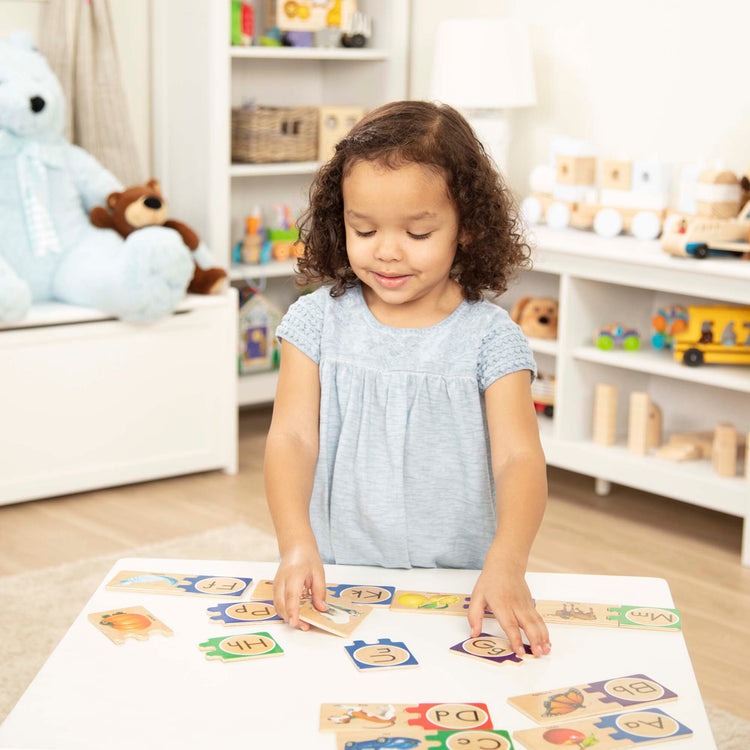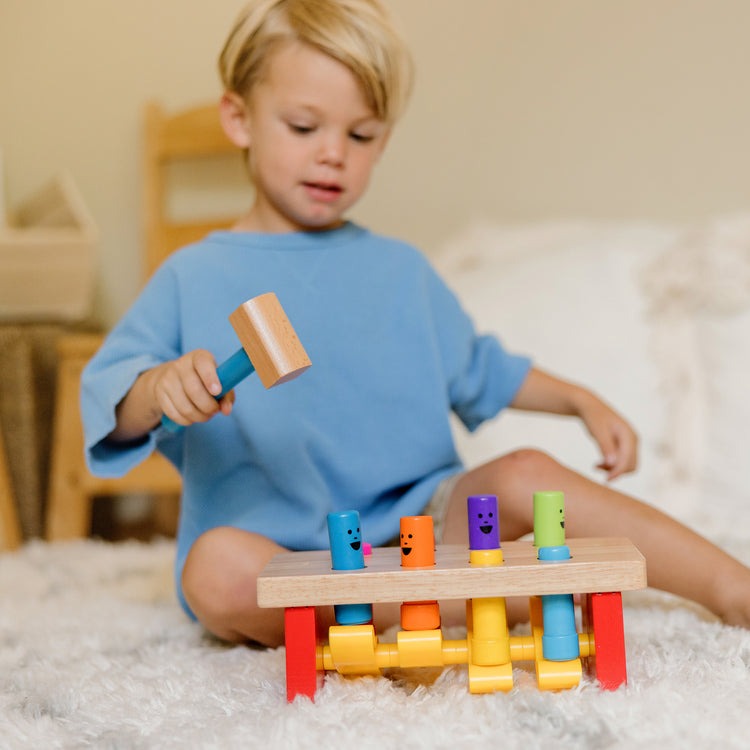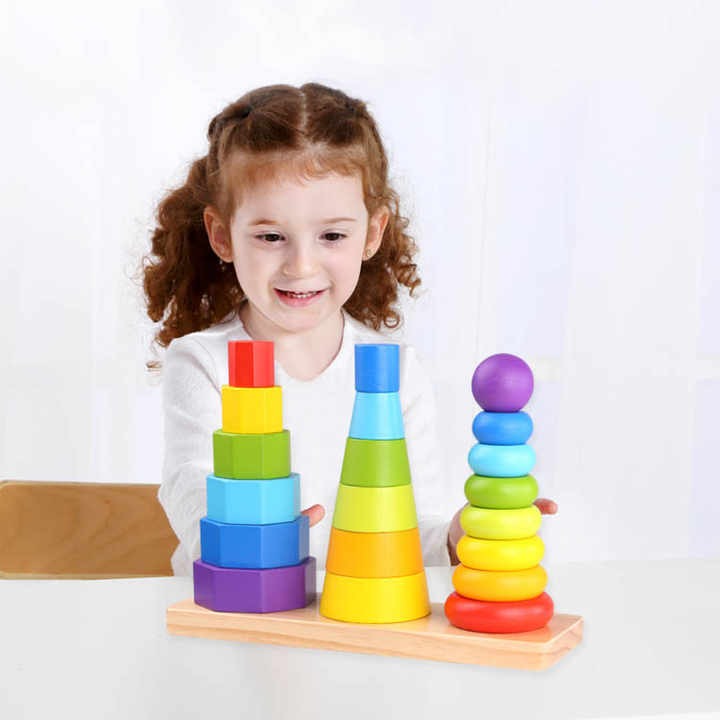The Best Types of Educational Toys for Cognitive Development
Cognitive development is crucial in early childhood, and educational toys can play an essential role. For 5-year-olds, toys that challenge the mind and encourage thinking are key. Here are some recommendations of educational toys that foster cognitive growth.
Interactive Learning Toys
Interactive learning toys grab a child’s attention and make learning active and enjoyable. Options such as electronic flashcards, interactive world maps, and talking books help children learn through play. These toys often speak, sing, or ask questions to engage little learners. Look for ones that offer a range of difficulties to grow with your child.
Problem-Solving Games
Games that focus on problem-solving are perfect for developing critical thinking skills. Puzzle games, memory match-ups, and sort-and-sequence sets encourage kids to find solutions. They can practice patterns, relationships, and even early coding concepts. These games are not only fun but also boost logical thinking and decision-making skills.
Top Educational Toys for Enhancing Language Skills

Enhancing language skills at a young age is pivotal. For 5-year-olds, educational toys designed to boost reading and spoken abilities can set a strong foundation for later learning stages. We’ll explore toys that specifically target the development of these essential skills.
Reading and Writing Toys
For burgeoning readers and writers, specific toys can be incredibly beneficial. Alphabet puzzles and electronic reading devices are excellent educational toys for 5 year olds. These toys make recognizing letters and learning to read more interactive and fun. They encourage children to engage with letters and words, fostering early literacy skills. Magnetic letters and story-building blocks also help in forming words and creating simple sentences. This early exploration of reading and writing paves the way for improved language skills.
Language-Learning Apps and Games
In the digital age, apps and games contribute significantly to educational methods. Language-learning apps designed for children are interactive and offer a playful approach to learning new words and phrases. These apps often include enjoyable activities like matching games, fill-in-the-blanks, and pronunciation exercises that keep young learners engaged. They can turn the daunting task of learning a new language into a fun-filled journey, making these educational toys for 5-year-olds essential for language development.
Essential Toys for Developing Fine Motor Skills
Developing fine motor skills is critical for 5-year-olds, as it lays the groundwork for a range of everyday tasks. Educational toys that encourage the refinement of these skills can be very beneficial for children’s dexterity and hand-eye coordination. Below, we discuss some must-have toys that aid in the development of fine motor skills.
Building Blocks and Construction Sets
Building blocks and construction sets are classic educational toys for 5-year-olds that promote fine motor skills. These toys require kids to pick up, place, and snap together small pieces. This helps in strengthening their fingers and developing precise movements. Look for sets that challenge children but are not too complex for their age. These toys often also spark imagination, as children build and rebuild structures from their creativity.
Craft and Art Kits
Craft and art kits are perfect for young artists looking to express themselves while honing their fine motor skills. These kits can include materials for coloring, cutting, pasting, and assembling. They encourage the use of hands and fingers in artistic ways, promoting dexterity and coordination. Simple tasks like holding a paintbrush or cutting along lines are key in developing these skills. Craft and art kits not only support fine motor development but also foster artistic growth.
STEM Toys that Promote Early Math and Science Skills

STEM toys are vital for introducing young children to the worlds of science, technology, engineering, and mathematics. These educational toys for 5-year-olds help bridge curiosity with learning by making complex concepts more accessible and engaging. Let’s dive into the types of STEM toys that particularly focus on math and science skills.
Science Kits
Science kits are exciting educational toys for 5-year-olds that make learning about the natural world fun. These kits often include experiments related to chemistry, physics, and biology. Children can grow crystals, explore volcanic reactions, or understand plant biology in an interactive way that encourages scientific thinking. Ensure the kits you choose are suited to your child’s age and come with detailed, easy-to-understand instructions.
Math Games
Math games help children improve their numerical skills through play. These games teach basic arithmetic like addition and subtraction but can also introduce geometry and building skills. Educational toys such as counting beads, shape sorters, and simple board games designed for children help make math a fun learning experience. Select games that are engaging but not too difficult, to maintain your child’s interest in learning new math skills.
Key Features to Look for When Choosing Educational Toys
When selecting educational toys for 5-year-olds, it’s vital to consider certain key features. These will ensure the toys are not only enjoyable but also beneficial for your child’s learning and development. Here are the crucial aspects to pay attention to.
Age Appropriateness
The first aspect to consider is age appropriateness. Toys should match a child’s developmental stage. This ensures the child can engage with the toy without getting frustrated or bored. Look for toys labeled for the 5-year-old age group. They should provide the right level of challenge to promote learning without causing any undue stress.
Safety Features
Safety is paramount when it comes to toys for any age group. Always check for non-toxic materials and durable construction. Toys should be free from small parts that pose choking hazards. Also, edges should be smooth to prevent cuts or scratches. Quality standards certifications, like the CE mark in Europe or ASTM in the US, indicate a toy meets safety guidelines. By selecting safe educational toys for 5-year-olds, you ensure a secure and supportive environment for their play and learning journeys.
The Role of Play in Learning: Benefits of Educational Toys

Beyond the pure joy of play, educational toys bring multiple benefits to a child’s learning path. In this section, we delve into how these toys act as a catalyst for creativity and support social and emotional growth in 5-year-olds.
Boosting Creativity and Imagination
Educational toys for 5-year-olds are key in firing up a child’s creativity and imagination. Toys like building blocks, art kits, and role-playing games open up a world of make-believe and innovation. They encourage kids to come up with their own stories and solutions. This kind of play builds creative thinkers who are ready to explore and invent.
Toys that offer open-ended play allow children to design and direct their scenarios. This can be as simple as blocks that turn into a fortress or dolls that take on unique personalities. These toys help kids to dream big and imagine new possibilities. Such play is vital for fostering creativity, which is an asset in all areas of life.
Encouraging Social and Emotional Development
Play is crucial for a child’s social and emotional development. Educational toys that require turn-taking and sharing are great for teaching these skills. These toys help children learn patience, cooperation, and how to deal with winning or losing.
Toys that mimic real-life settings, like play kitchens or toolsets, allow kids to role-play and understand social roles. They learn to communicate and empathize through these toys. These skills are crucial as they start school and begin forming deeper relationships outside the family.
Furthermore, play can help children express and manage their emotions. For example, soft toys or dolls can become confidants for expressing feelings. This kind of emotional play helps kids to process and understand their emotions in a safe and controlled environment.